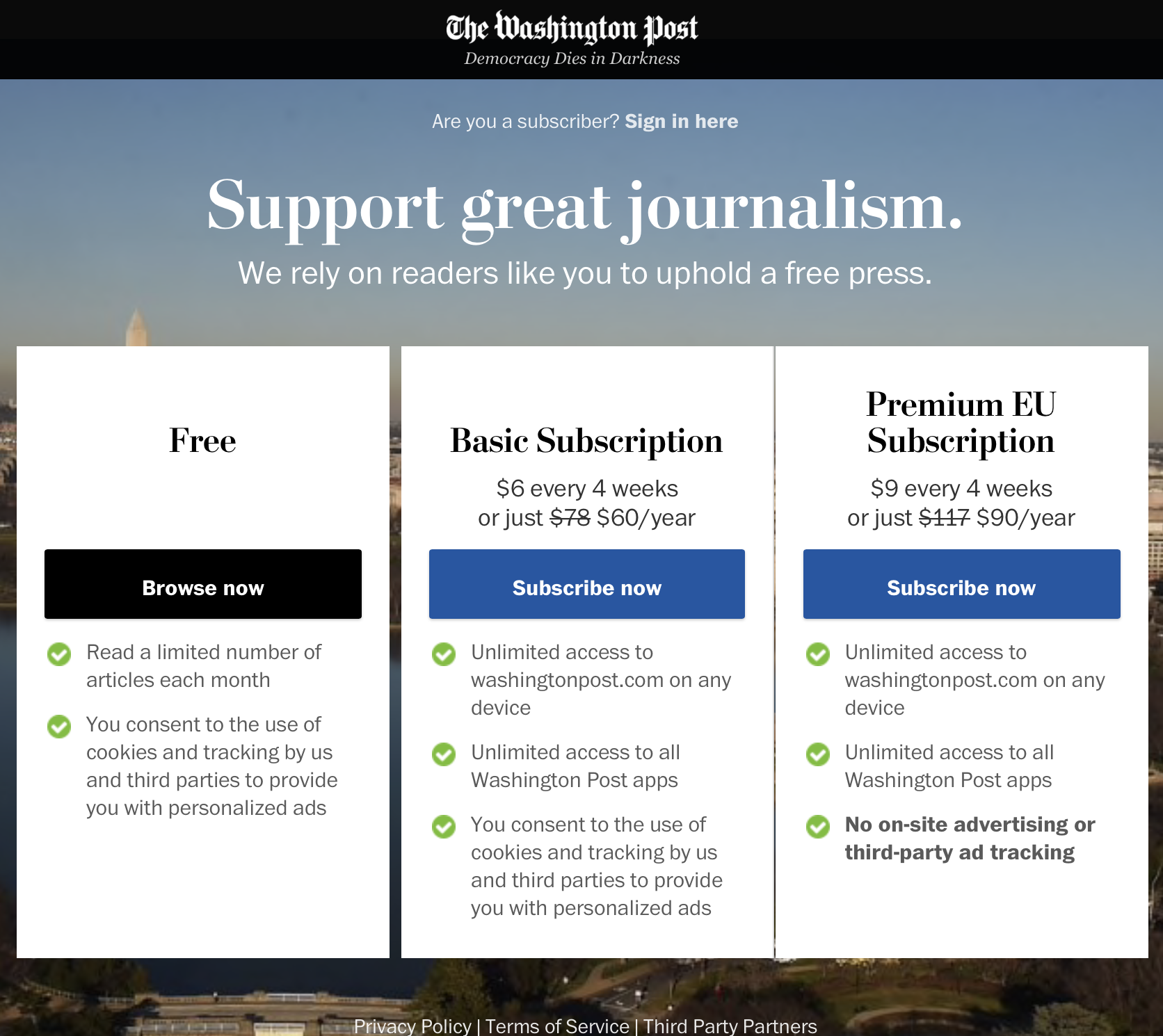This is what greets me when I go to the Washington Post site from here in Germany:

So you can see it too, wherever you are, here’s the URL I’m redirected to on Chrome, on Firefox, on Safari and on Brave. All look the same except for Brave, which shows a blank page.
Note that last item in the Premium EU Subscription column: “No on-site advertising or third-party tracking.”
Ponder for a moment how the Sunday (or any) edition of the Post‘s print edition would look with no on-paper advertising. It would be woefully thin and kind of worthless-looking. Two more value-adds for advertising in the print edition:
- It doesn’t track readers, which is the sad and broken norm for newspapers and magazines in the online world—a norm now essentially outlawed by the GDPR, and surely the reason the Post is running this offer.
- It sponsors the Post. Tracking-based advertising, known in the trade as adtech, doesn’t sponsor anything. Instead it hunts down eyeballs its spyware already knows about, no matter where they go. In other words, if adtech can shoot a Washington Post reader between the eyes at the Skeevy Lake Tribune, and the Skeevy is cheaper, it might rather hit the reader over there.
So here’s the message I want the Post to hear from me, and from every reader who values what they do:

That’s what I get from the print edition, and that’s what I want from the online edition as well.
So I want two things here.
One is an answer to this question: Are ANY publishers in the online world selling old-fashioned ads that aren’t based on tracking and therefore worth more than the tracking kind? (And are GDPR-compliant as well, since the ads aren’t aimed by collected personal data.)
The other is to subscribe to the Post as soon as they show me they’re willing to do what I ask: give me those real ads again. And stop assuming that all ads need to be the tracking-based kind.
Thanks in advance.
Leave a Reply